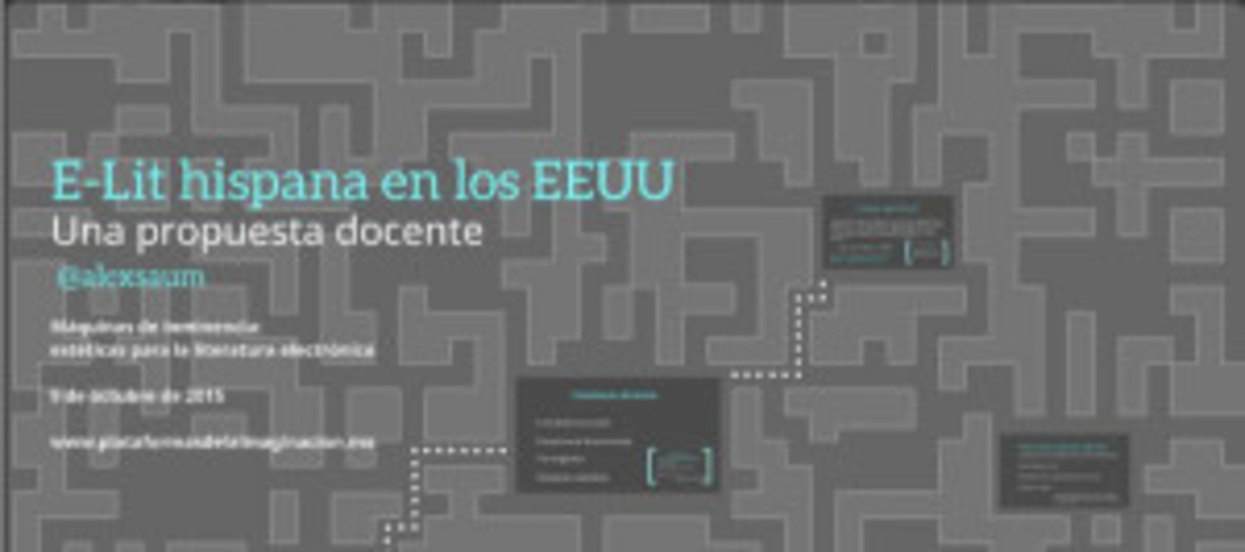Alex Saum-Pascual at the National Autonomous University of Mexico

BCNM faculty Alex Saum-Pascual presented "Literatura electrónica hispana en Estados Unidos. Una propuesta docente" (Hispanic Electronic Literature in the United States, a Teaching Proposal) on October 9th at the National Autonomous University of Mexico (UNAM) in Mexico City about the teaching of Hispanic electronic literature in an American university. Her presentation was part of the "Simposio internacional Máquinas de inminencia: estéticas de la literatura electrónica" (International Symposium of Imminent Machines: Aesthetics of Elecronic Literature) which in turn was a part of the "Plataformas de la Imaginación" (Platforms of Imagination) exposition series on electronic literature sponsored by the Laboratorio de literaturas extendidas y otras materialidades (Laboratory of Extended Literatures and Other Materialities). The symposium drew in an international collection of presenters presenters from Mexico, the UK, Canada, the United States, Brazil, Korea, Argentina, the Netherlands, and Austria and covered topics in both electronic art and literature.
To find out more about her talk and the experience, visit Alex's blog!
From the blog:
"Although I generally tend to favor speaking about my academic research, this time I decided to focus on a teaching project I have been working on for a while now related to the teaching of (Spanish) electronic literature in the US and its relationship to the fields of Digital Humanities and Spanish studies, as well as the University as a whole. What I propose in this talk (among many other things) is to perhaps start thinking electronic literature as a foreign literature, and as such, host it in foreign language departments within the University. These are important topics touching several aspects of the academic institution: curricular planning but also the administration and the social realm. I have been wondering lately if these teaching and administrative fields are not as important (perhaps even more important) than the type of research projects we tend to favor as professors in Research 1 universities."
You can even see her slides here:
